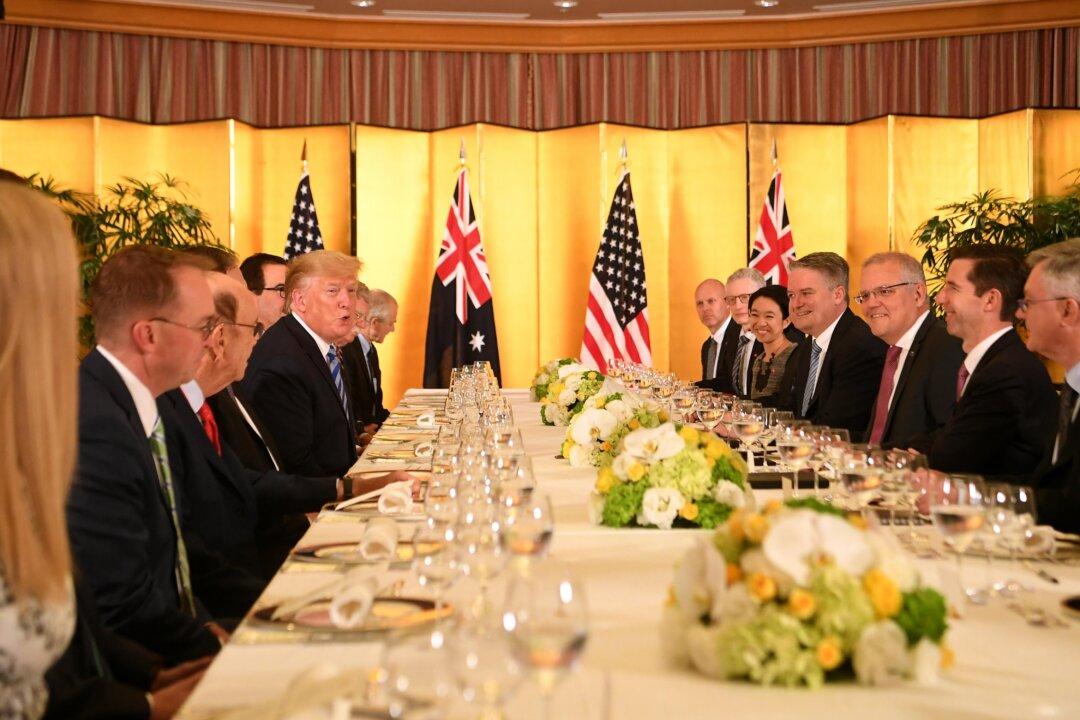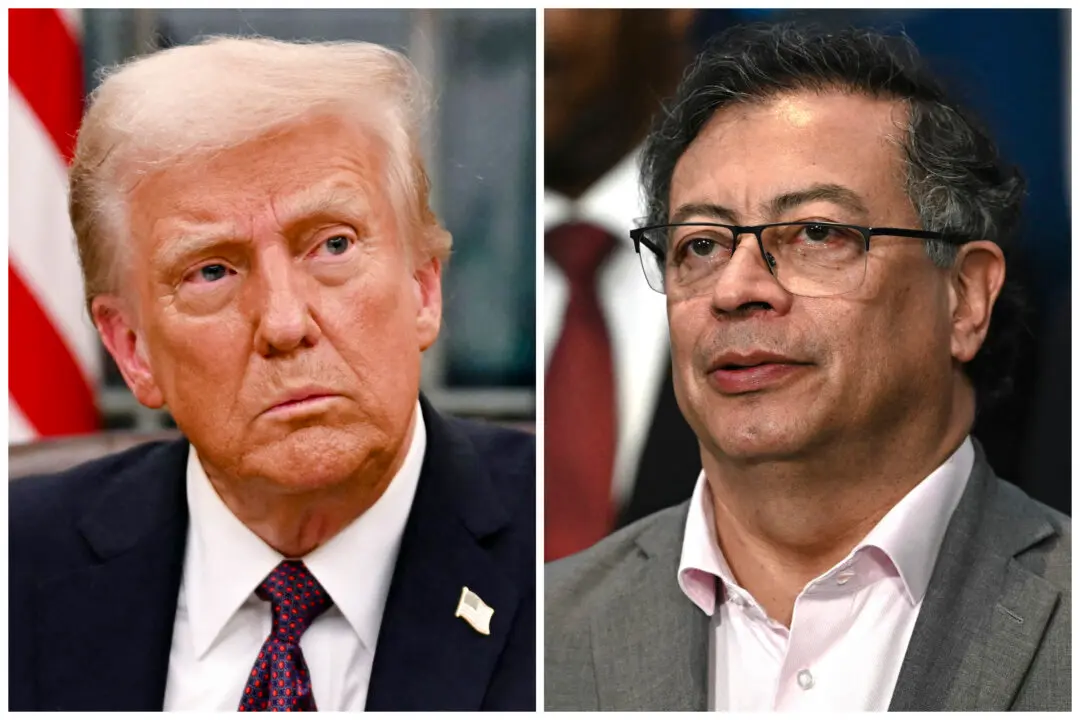Australia’s Prime Minister Scott Morrison and President Donald Trump have met for a working dinner during which their teams discussed trade, Morrison’s election victory, and Iran and North Korea on the eve of the G-20 summit in Osaka, Japan.
The meeting with Australia’s new prime minister was the first Trump held after his arrival in Osaka just a few hours earlier.





